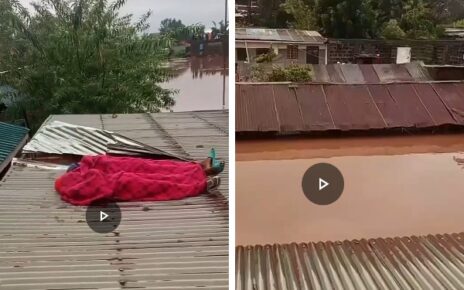In the tranquil town of Kakamega, nestled in the heart of Kenya, a tragic incident recently unfolded, shaking the community to its core. A resident, driven by desperation or perhaps misguided intentions, met his demise while attempting to steal copper wires. This event not only underscores the dangers of theft but also raises pertinent questions about the socio-economic challenges faced by individuals in many parts of the world.
Electrocution, a perilous risk associated with tampering with electrical infrastructure, claimed yet another life. The allure of copper wires, with their lucrative resale value, often blinds individuals to the inherent hazards. In their pursuit of quick gains, they overlook the potential consequences, tragically illustrated by this incident. The loss of life serves as a somber reminder of the irreplaceable value of human existence, a cost far too steep for any material gain.
Moreover, this incident sheds light on the underlying socio-economic issues prevalent in many communities. Desperation and economic hardship can drive individuals to resort to risky behaviors in search of sustenance or financial relief. The scarcity of viable opportunities, coupled with the allure of quick profits, creates a breeding ground for such perilous activities. As a society, it behooves us to address the root causes of such desperation, offering support and avenues for economic empowerment rather than perpetuating cycles of poverty and risk-taking.
Furthermore, the theft of copper wires not only endangers the lives of perpetrators but also poses significant consequences for public safety and infrastructure. Disruptions in electrical systems can lead to power outages, compromising essential services and affecting the livelihoods of countless individuals. The ripple effects of such actions extend far beyond the immediate vicinity, impacting communities at large. Therefore, combating theft and safeguarding critical infrastructure are imperative for ensuring the well-being and stability of society.
In response to this tragedy, it is essential for both authorities and community leaders to take proactive measures. Efforts should focus not only on deterring theft through enhanced security measures but also on addressing the underlying socio-economic disparities. Investing in education, skills training, and job creation initiatives can provide viable alternatives to illicit activities, empowering individuals to contribute positively to their communities.
Additionally, raising awareness about the dangers of tampering with electrical infrastructure is crucial. Education campaigns highlighting the risks involved and emphasizing the value of life over material gain can help deter individuals from engaging in such hazardous behaviors. By fostering a culture of safety and responsibility, communities can work together to prevent future tragedies.
In conclusion, the unfortunate demise of a Kakamega resident serves as a poignant reminder of the perils associated with theft and the broader socio-economic challenges faced by many. Beyond mourning the loss of life, it is incumbent upon us to address the root causes of such desperation and work towards creating a society where every individual has access to opportunities for a dignified livelihood. Only through collective efforts can we prevent similar tragedies and build a safer, more prosperous future for all.


